BYD Tang vs Hyundai Tucson – Differences & prices compared
Everyday use, family trips or long-distance drives – here’s where the differences show.
Discover whether BYD Tang or Hyundai Tucson fits your lifestyle better.
Costs and Efficiency:
Looking at overall running costs, both models reveal some interesting differences in everyday economy.
Hyundai Tucson has a convincingly advantage in terms of price – it starts at 30600 £, while the BYD Tang costs 64300 £. That’s a price difference of around 33651 £.
As for range, the BYD Tang performs decisively better – achieving up to 530 km, about 460 km more than the Hyundai Tucson.
Engine and Performance:
Power, torque and acceleration say a lot about how a car feels on the road. This is where you see which model delivers more driving dynamics.
When it comes to engine power, the BYD Tang has a clearly edge – offering 517 HP compared to 252 HP. That’s roughly 265 HP more horsepower.
In acceleration from 0 to 100 km/h, the BYD Tang is clearly quicker – completing the sprint in 4.90 s, while the Hyundai Tucson takes 7.90 s. That’s about 3 s faster.
In terms of top speed, the Hyundai Tucson performs minimal better – reaching 194 km/h, while the BYD Tang tops out at 190 km/h. The difference is around 4 km/h.
There’s also a difference in torque: BYD Tang pulls convincingly stronger with 680 Nm compared to 367 Nm. That’s about 313 Nm difference.
Space and Everyday Use:
Beyond pure performance, interior space and usability matter most in daily life. This is where you see which car is more practical and versatile.
Seats: BYD Tang offers evident more seating capacity – 7 vs 5.
In curb weight, Hyundai Tucson is convincingly lighter – 1520 kg compared to 2630 kg. The difference is around 1110 kg.
In terms of boot space, the Hyundai Tucson offers decisively more room – 620 L compared to 235 L. That’s a difference of about 385 L.
In maximum load capacity, the Hyundai Tucson performs slight better – up to 1799 L, which is about 144 L more than the BYD Tang.
When it comes to payload, BYD Tang slight takes the win – 575 kg compared to 545 kg. That’s a difference of about 30 kg.
Who comes out on top?
Overall, the BYD Tang shows itself to be dominates this comparison and secures the title of DriveDuel Champion.
It convinces with the more balanced overall package and proves to be the more versatile choice for everyday use.
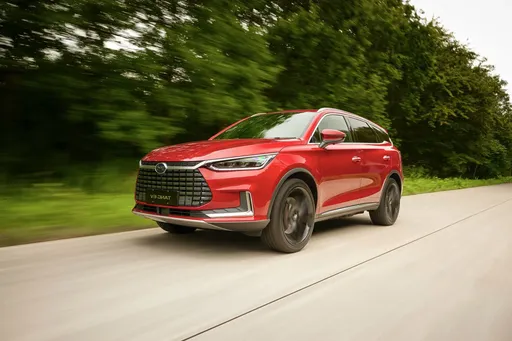
BYD Tang
BYD Tang
The BYD Tang represents a bold entry into the competitive SUV market, blending cutting-edge technology with modern design aesthetics. Its spacious interior is complemented by high-quality materials and innovative features, making it a strong contender for families and tech enthusiasts alike. With an emphasis on sustainability, the Tang offers an eco-friendly driving experience without compromising on performance or luxury.
details @ press.bydauto.be
@ press.bydauto.be
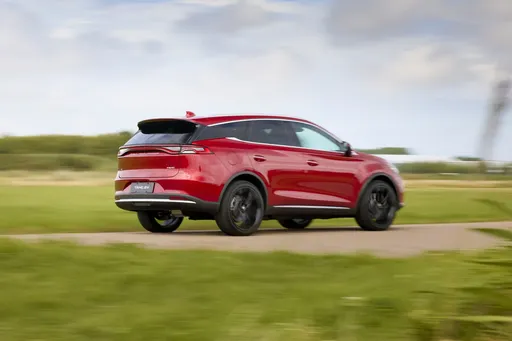 @ press.bydauto.be
@ press.bydauto.be
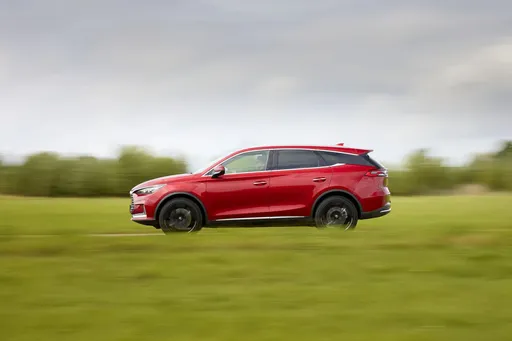 @ press.bydauto.be
@ press.bydauto.be
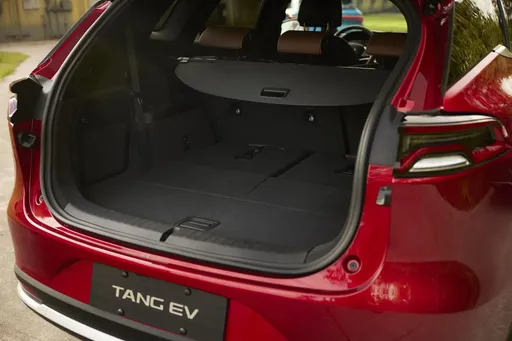 @ press.bydauto.be
@ press.bydauto.be
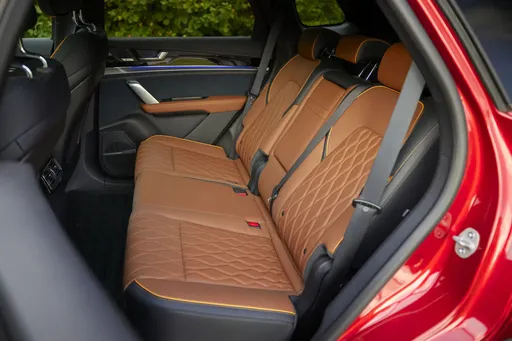 @ press.bydauto.be
@ press.bydauto.be
Hyundai Tucson
The Hyundai Tucson is a standout choice in the compact SUV segment, offering a perfect blend of style, comfort, and practicality. Its modern design is complemented by a spacious interior that provides ample room for passengers and luggage alike. With advanced technology and safety features, the Tucson ensures a smooth and enjoyable driving experience.
details @ hyundai.news
@ hyundai.news
 @ hyundai.news
@ hyundai.news
 @ hyundai.news
@ hyundai.news
 @ hyundai.news
@ hyundai.news
 @ hyundai.news
@ hyundai.news

|

|
|
|
|
Costs and Consumption |
|
|---|---|
|
Price
64300 £
|
Price
30600 - 46300 £
|
|
Consumption L/100km
-
|
Consumption L/100km
1 - 6.9 L
|
|
Consumption kWh/100km
24 kWh
|
Consumption kWh/100km
-
|
|
Electric Range
530 km
|
Electric Range
64 - 70 km
|
|
Battery Capacity
-
|
Battery Capacity
-
|
|
co2
0 g/km
|
co2
22 - 156 g/km
|
|
Fuel tank capacity
-
|
Fuel tank capacity
42 - 54 L
|
Dimensions and Body |
|
|---|---|
|
Body Type
SUV
|
Body Type
SUV
|
|
Seats
7
|
Seats
5
|
|
Doors
5
|
Doors
5
|
|
Curb weight
2630 kg
|
Curb weight
1520 - 1889 kg
|
|
Trunk capacity
235 L
|
Trunk capacity
546 - 620 L
|
|
Length
4970 mm
|
Length
4510 - 4520 mm
|
|
Width
1955 mm
|
Width
1865 mm
|
|
Height
1745 mm
|
Height
1650 mm
|
|
Max trunk capacity
1655 L
|
Max trunk capacity
1721 - 1799 L
|
|
Payload
575 kg
|
Payload
525 - 545 kg
|
Engine and Performance |
|
|---|---|
|
Engine Type
Electric
|
Engine Type
Diesel MHEV, Petrol MHEV, Petrol, Full Hybrid, Plugin Hybrid
|
|
Transmission
Automatic
|
Transmission
Automatic, Manuel
|
|
Transmission Detail
Reduction Gearbox
|
Transmission Detail
Dual-Clutch Automatic, Manual Gearbox, Automatic Gearbox
|
|
Drive Type
All-Wheel Drive
|
Drive Type
Front-Wheel Drive, All-Wheel Drive
|
|
Power HP
517 HP
|
Power HP
136 - 252 HP
|
|
Acceleration 0-100km/h
4.90 s
|
Acceleration 0-100km/h
7.9 - 11.6 s
|
|
Max Speed
190 km/h
|
Max Speed
180 - 194 km/h
|
|
Torque
680 Nm
|
Torque
265 - 367 Nm
|
|
Number of Cylinders
-
|
Number of Cylinders
4
|
|
Power kW
380 kW
|
Power kW
100 - 185 kW
|
|
Engine capacity
-
|
Engine capacity
1598 cm3
|
General |
|
|---|---|
|
Model Year
2024
|
Model Year
2024
|
|
CO2 Efficiency Class
A
|
CO2 Efficiency Class
E, F, D, B
|
|
Brand
BYD
|
Brand
Hyundai
|
Is the BYD Tang offered with different drivetrains?
The BYD Tang is available as All-Wheel Drive.
The prices and data displayed are estimates based on German list prices and may vary by country. This information is not legally binding.
